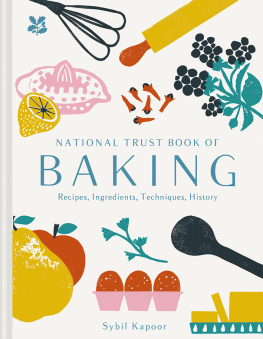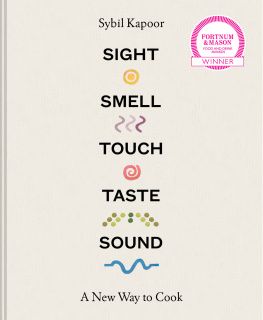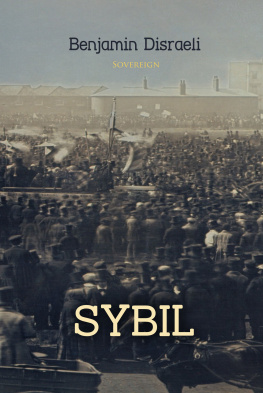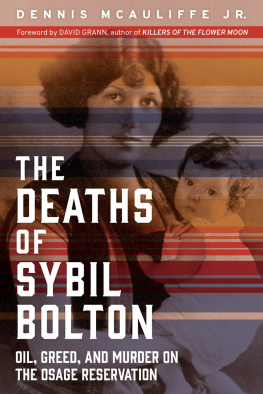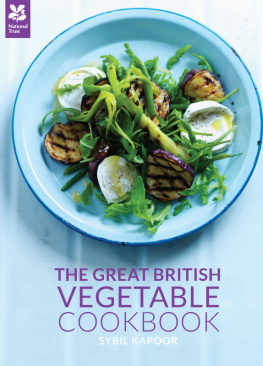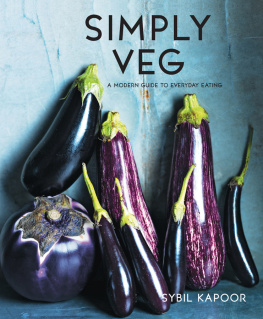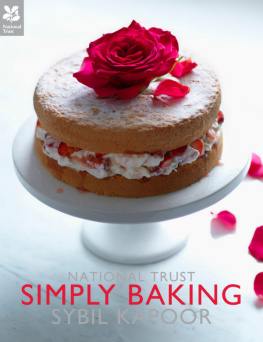Contents
Guide
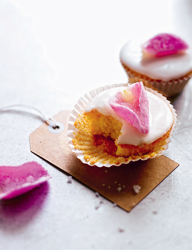
NATIONAL TRUST BOOK OF BAKING
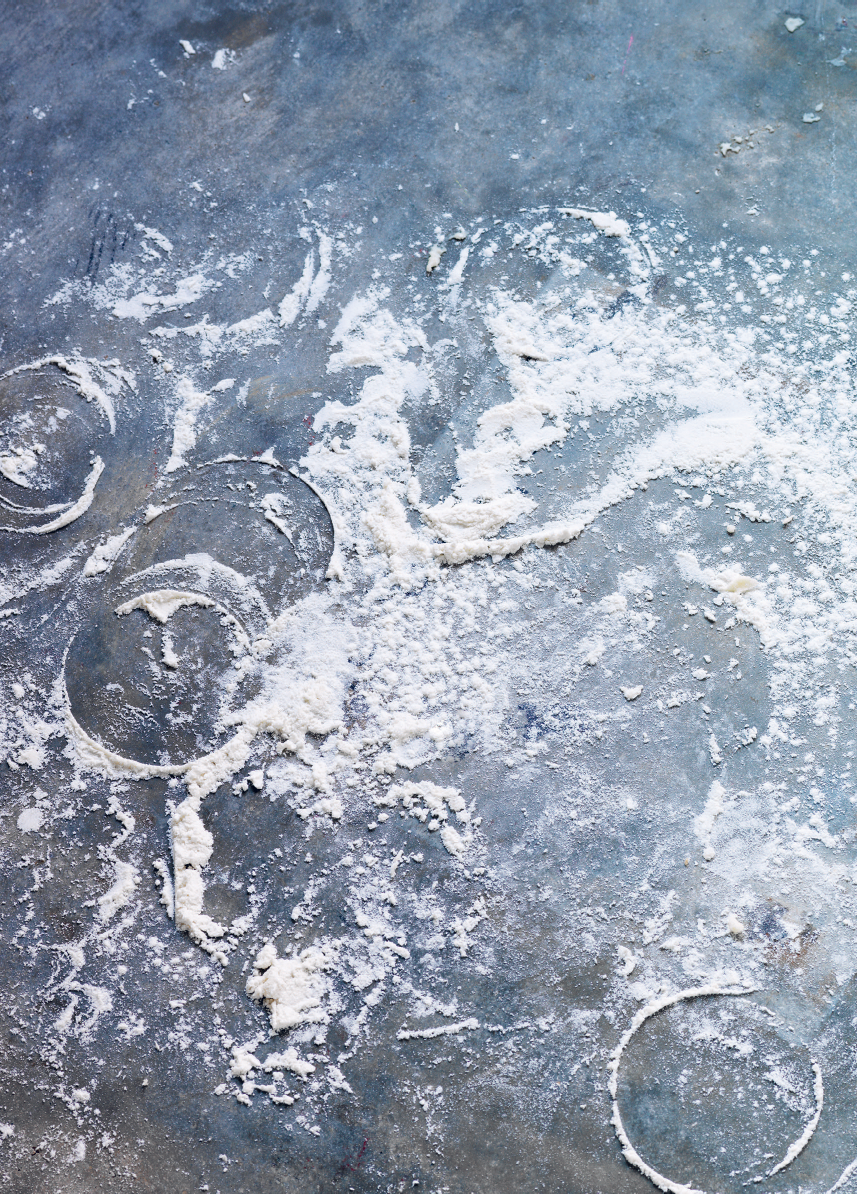
NATIONAL TRUST BOOK OF BAKING
Sybil Kapoor

For Raju, with love
CONTENTS
NOTES
Temperatures given are for a fan oven. This method of heat is now widely used for electric ovens. It ensures that the oven temperature is the same at the top of the oven as at the bottom. If you have a conventional oven, increase the temperature by about 10C and cook in the centre of the oven unless otherwise specified. Ovens can vary greatly in temperature, and there is a difference of 1020C between fan and conventional ovens. Many recipe books allow a 20C difference, but I find this too large. It is important to follow your instinct when baking and to check dishes shortly before theyre due to be ready. I have adjusted the gas marks so that they work for each recipe; they are not necessarily the exact equivalent because gas ovens are not fan-assisted.
Where possible, I use British ingredients.
Butter is unsalted. This allows you to control the taste of each recipe more accurately.
For greasing cake tins, its better to use oil rather than butter as this prevents an uneven colouring of the sides of a cake. If you would like to use British-grown oil, buy a cold-pressed rapeseed oil.
Choose British organic or RSPCA Assured free-range eggs, medium-sized unless specified.
Salt is fine British sea salt, unless specified.
I like the pure taste of refined caster sugar and use it in most recipes. You can use unrefined caster sugar: it gives a more complex, caramelised flavour.
I use organic lemons, but you can use any other unwaxed lemons. Always wash lemons and pat them dry before using.
Pastry weight: traditional British recipes for pies and tarts give the weight of the flour (the main component of the pastry) to describe the pastry weight. This is not the same weight as a pack of ready-made pastry. See for more information about pastry.
If you love cooking from old British recipe books, it is helpful to know the following:
gill is 70ml/2 fl oz
1 gill is 140ml/ pint
1 (British) quart is 2 pints or gallon/1.140 litres
GF indicates that the recipe is gluten-free
CONVERSION TABLES
WEIGHTS
7.5g | oz |
15g | oz |
20g | oz |
30g | 1oz |
35g | 1 oz |
40g | 1 oz |
50g | 1 oz |
55g | 2oz |
60g | 2 oz |
70g | 2 oz |
80g | 2 oz |
85g | 3oz |
90g | 3 oz |
100g | 3 oz |
115g | 4oz |
125g | 4 oz |
140g | 5oz |
150g | 5 oz |
170g | 6oz |
185g | 6 oz |
200g | 7oz |
225g | 8oz |
250g | 9oz |
285g | 10oz |
300g | 10 oz |
310g | 11oz |
340g | 12oz |
370g | 13oz |
400g | 14oz |
425g | 15oz |
450g | 1lb |
500g | 1lb 2oz |
565g | 1 lb |
680g | 1 lb |
700g | 1lb 9oz |
750g | 1lb 10oz |
800g | 1 lb |
900g | 2lb |
1kg | 2lb 3oz |
1.1kg | 2lb 7oz |
1.4kg | 3lb |
1.5kg | 3 lb |
1.8kg | 4lb |
2kg | 4 lb |
2.3kg | 5lb |
2.7kg | 6lb |
3.1kg | 7lb |
3.6kg | 8lb |
4.5kg | 10lb |
OVEN TEMPERATURES | FAN | CONVENTIONAL | GAS |
Very cool | 100C | 110C/225F | Gas |
Very cool | 120C | 130C/250F | Gas |
Cool | 130C | 140C/275F | Gas 1 |
Slow | 140C | 150C/300F | Gas 2 |
Moderately slow | 160C | 170C/325F | Gas 3 |
Moderate | 170C | 180C/350F | Gas 4 |
Moderately hot | 180C | 190C/375F | Gas 5 |
Hot | 190C | 200C/400F | Gas 6 |
Very hot | 200C | 220C/425F | Gas 7 |
Very hot | 220C | 230C/450F | Gas 8 |
Hottest | 230C | 240C/475F | Gas 9 |
VOLUME
5ml | 1 teaspoon |
10ml | 1 dessertspoon |
15ml | 1 tablespoon |
30ml | 1fl oz |
40ml | 1 fl oz |
55ml | 2fl oz |
70ml | 2 fl oz |
85ml | 3fl oz |
100ml | 3 fl oz |
120ml | 4fl oz |
130ml | 4 fl oz |
150ml | 5fl oz |
170ml | 6fl oz |
185ml | 6 fl oz |
200ml | 7fl oz |
225ml | 8fl oz |
250ml | 9fl oz |
270ml | 9 fl oz |
285ml | 10fl oz | pint |
300ml | 10 fl oz |
345ml | 12fl oz |
400ml | 14fl oz |
425ml | 15fl oz | pint |

